Introduction
This article will discuss the unethical aspects of medical billing practices. Let’s boost your awareness of medical billing fraud, which you should carefully monitor and report.
Healthcare professionals adhere to a unique code of ethics that distinguishes them from many other industries, primarily because they prioritize patient well-being. In modern healthcare practices, these principles may seem incompatible, as financial concerns are inherently linked to the ability to treat patients effectively. Only a few honest healthcare providers want to increase their bank accounts illicitly.
The healthcare service providers claim reimbursements upon successful completion. Contrary to this, every activity carried out by a health care provider has a particular code associated with billing. This code we call the Current Procedural Terminology. The CPT establishes the payment amount to your provider. Service providers use these codes while submitting claims to insurance companies. Providers receive their due payment when they use the correct codes for the procedures performed. However, by using different codes, they can get paid different amounts of money. Medical billing fraud refers to upcoding and intentionally manipulating medical billing claims to betray the payers. Over the recent past, health care fraud has assumed a large magnitude due to the escalating levels of health care costs, the involvement of the new breed of private ‘messenger’ fraudsters, and, a relatively newer, though still emerging ,concern of fraud, which is quality care.
Medicare scam is among one of the most developing offenses in the land of the free. Every year, there are service providers which are involved in the cases of healthcare fraud and billions of dollars are lost. Last year, over 600 individuals were forfeited for healthcare fraud in the U.S., involving over $900 million in false and unethical medical billing practices.
Violating health care fraud laws can result in severe consequences, including:
- Imprisonment and fines
- civil fiscal penalties
- loss of licensure
- loss of staff privileges
- Elimination of participation in federal healthcare programs
So, ethical and legal violations can land an offender in hot water. Now, discuss the unethical billing practices you should monitor and report. Here are the top 10 unethical practices in medical billing:
Upcoding
First, it’s essential to understand upcoding. Upcoding is an issued billing malpractice where more code CPTs are charged in the reimbursement claims and represented that some procedures were done, which in real sense, never took place. Healthcare providers can also engage in the following scams to fraudulently obtain reimbursements; this has extensively harmed the healthcare industry and payers.
Providers can significantly increase their payment by using codes for more severe procedures with higher payment amounts. The health care provider submits exaggerated bills to payers with procedure codes that were never performed or include unnecessary procedures never required to treat the injury. The doctor or other health care provider provides a service but lists a billing code for a costly procedure.
For example, when a patient attends a therapy session, the medical claim undergoes an up-coding to reflect the completion of medical treatment. Similarly, one could code routine medical transportation as emergency life support. Or a cold coded as pneumonia.
In illegal or fake billing cases, one should ask the healthcare provider to rectify the charges immediately. These up-coded medical bills sometimes slip through the insurance carrier checks, but mainly, they can cause objections to payment.
Duplicate charges
A duplicate charge is also a form of overbilling. It means that one provider charges twice for the same procedure or two providers charge for the same procedure. For instance, if you received a glucose test and the doctor and nurse recorded it, the billing department might generate two bills. In such cases, ask for corrections directly from your medical provider. If an outside billing company is billing you (which is more common and affordable nowadays), call your doctor and ask them to communicate with their medical billers to make corrections.
Phantom charges
A billing is the most common type of medical fraud, comprising almost half of all healthcare provider cases. Why did it ascend? This concept called phantom billing occurs when a medical provider submits bills to Medicare for procedure, kits and services that are not provided or not necessary. According the the CIA world fact book the U. S. spent $3. 6 trillion on medical care in the fiscal year ending in 2018. This amounts to nearly $1,430 billion or, in value, nearly 18 percent of GDP. Medical providers get paid back for the services for prescription drugs through billing the federal government’s Medicare, Medicaid & Tricare. Experts believe that almost 10% of these medical bills contain some fraud, like phantom billing.
Unbundling
Unbundling is separating charges that belong under the same procedure code. It involves using multiple CPT codes instead of a single code that captures payment for the parts of a procedure, either due to misunderstanding or to increase payment.
This mistake can be tricky to identify if you’re a certified medical bill coder. Sometimes, billing for certain medical services collectively results in lower costs. For instance, billing for fever, cough, and cold treatment co-occurs. Unbundling involves submitting three bills for each procedure, using separate codes for fever, cold, and cough instead of a single code.
In the U.S., most healthcare providers use billing software or an EHR system. These systems integrate with medical billing and credentialing services software, which can warn the provider if duplicate services or procedures are detected.
Incorrect quantities
What happens if the billing department adds an extra “0” to the end of a number?
“Yes.” The mistake could be as simple as this. Ensure that an unethical medical biller doesn’t overcharge you by mistakenly inflating the quantity of items or medications.
Medical equipment frauds
In most of cases, a healthcare provider can be involved in medical fraud deliberately. Durable medical equipment or also known as DME plays a significant role in the treatment of a particular patient. This is equipment such as a private bedroom, mobility scooter, motorized vehicle and so on The wheelchair scam is a more famous report.
The provider is billing for devices and equipment that the patient still needs to receive. In this manner, healthcare providers divert funds from their own pockets. Medical equipment fraud is one of the major types of illegal billing practices that cost the government’s primary healthcare assistance program millions of dollars. Contact to attorney for medical billing and openhouseperth.net insurance.
Misrepresenting service dates or locations
Healthcare providers or clinics sometimes need to present correct, proper, or accurate records of services. This happens in the following ways:
Misrepresenting dates of treatment
False claim violations often occur when fewer visits occur, but offices submit claims for multiple visit dates. The office uses this tactic to increase the number of ‘billable events’ or instances they can bill to insurance or other payers. The patient may receive various services in a single visit. Still, the office may bill for each service separately, inflating the number of billable events and potentially committing healthcare fraud.
Misrepresenting the location of services
In this false claim violation, medical providers make claims about services given at their clinics. However, the treatment took place outside the clinic. The medical provider knows that claiming the service took place on separate dates and locations allows them to make more money.
Medicare fraud and abuse
The federal healthcare plan of Medicare is funded from payroll taxes for individuals over 65 years and this scheme has very active programs against the healthcare frauds and abuses. The main tool in this fight is the Federal False Claims Act. It allows individuals to report healthcare fraud and abuse, with the violation being against a federal or state healthcare program.
Medicare fraud and abuse occur when an individual betrays Medicare through:
- Using another Medicare card or number.
- The billing process differs from the service’s receipt.
- We will bill you for the returned medical equipment.
- Perform unnecessary services.
- A waiver of deductibles or co-payments
Waiving of deductibles or co-payments
Although fulfilling a waiver request may seem harmless, the law clearly states that physicians can only waive co-payments and deductibles in a limited situation. Most government healthcare plans and insurance companies may consider routine waivers of co-payments and deductibles fraudulent.
The premise is that if patients must pay for their doctor visits, they only seek care when necessary. This is also a way to balance some expenditures. Regardless, some providers submit false claims to insurance companies after waiving patients’ deductibles or co-payments.
Billing Services not provided
Individuals are submitting claims for treatments they did not execute. Medicaid and Medicare only reimburse for approved procedures. The provider cannot charge for unauthorized tests and treatments in this scenario. Healthcare providers, on the other hand, perform unnecessary procedures to boost reimbursements by manipulating the diagnosis. These are standard unethical medical billing practices and serious Healthcare Act violations. Many patients often go unnoticed because they need to scrutinize their EOBs and bills more carefully. In such cases, contact the doctor’s office for corrections. If they’re unwilling to correct it, report them to your insurance company.
How to Monitor and Report Abuse
Healthcare fraud and abuse can have severe consequences, leading a service provider to criminal and civil accountability. While eradicating intentionally committed fraud may be challenging, we can implement specific internal and external systems and processes to detect and deter future instances more effectively.
One can monitor and report instances of fraud and abuse in billing claims:
- Training and Education
- Computer-assisted coding is executed.
- We validate members’ I.D. cards before rendering services.
- Avoid unnecessary prescriptions or treatments.
- We are contacting the relevant compliance departments to report any suspicions of fraud.
- Validating members’ I.D. cards before rendering services.
Outsourcing medical billing can be a reliable solution to reduce accounting and coding errors. It saves time and money and improves patient satisfaction with accurate medical bills. Medical billing companies ensure no coding errors before submitting bills, reducing denial risks and speeding up payment. Their knowledge is critical in gaining the patient’s confidence in deals with maintaining regulatory compliance in the growing healthcare industry.

FAQS
What are unfair ways of paying for medical care, and how can I spot them?
Unfair medical billing practices refer to circumstances that dictate that healthcare providers or departments dealing with billing act in a manner that subjects consumers to the vice. This includes surprise billing which is where a provider bills a patient for services that the patient assumed are covered by their health plan and balance billing, where the provider bills the patient an amount equal to the difference between what they charge and what their health plan is willing to pay for the service. It is critical to review your medical bills and cross reference the amounts with the explanation of benefits (EOB) that your insurance company will give to find charges that do not seem right. This will help you detect any unfair billing. Ask your insurance company or healthcare practitioner for more details if something needs clarification.
What are unethical billing practices, and what are their consequences?
Unethical billing practices thus refer to practices performed by either the care providers or billing organizations that fraudulently provide false information to a payer and therefore succeed in billing an amount that is higher than what is appropriate. Such practices can create or drain financial worth of all the stakeholders; the payer, the patient as well as the entire healthsystem. This includes:
- Code Inflation: This involves applying a code for a more costly service than what was provided to increase the bill, which can lead to financial loss for the payer and a tarnished reputation for the healthcare provider.Phantom charges: This unethical practice involves listing fees for procedures or services never rendered to the patient. To prevent this, it’s essential to maintain accurate records and cross-check them with the patient’s medical history. Code Fragmentation: Separating charges that should be combined under one comprehensive code, resulting in a higher total bill.
- Quantity Discrepancies: Billing for more supplies or medications given to the patient.
- Equipment Charge Fabrication: Requesting payment for medical devices or equipment the patient never received.
- Deductible Forgiveness: Not collecting required copayments or insurance deductibles from patients.




